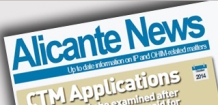 In addition to the earlier trademarks specified in Article 8(2) CTMR, non-registered trademarks and other signs protected at Member State level used in the course of trade as ‘business identifiers’ of more than mere local significance can be invoked in an opposition provided that such rights confer on their proprietors the right to prohibit the use of a subsequent trade mark. Article 8(4) CTMR governs this relative ground for refusal.
In addition to the earlier trademarks specified in Article 8(2) CTMR, non-registered trademarks and other signs protected at Member State level used in the course of trade as ‘business identifiers’ of more than mere local significance can be invoked in an opposition provided that such rights confer on their proprietors the right to prohibit the use of a subsequent trade mark. Article 8(4) CTMR governs this relative ground for refusal.
Unlike other grounds, Article 8(4) CTMR does not describe the conditions applicable to the acquisition and scope of protection of the earlier right being invoked. The particulars of such conditions and scope of protection have to be found in the (national or EU) law protecting the earlier right.
On 27/03/2014, the judgment C-530/12 P, ‘Representation of a hand’ was delivered by the Court of Justice. The judgment deals, among others, with the Office application of national law. In light of this judgment, the KC Relative Grounds has considered necessary to clarify its practice on the proof of applicable law governing the sign in Article 8(4) CTMR cases. The modifications, introduced in the Guidelines under Part C: Oppositions, Section 4: Rights under Article 8(4) CTMR, intend to make clear who bears the burden of proof of the applicable law, the means of evidence and the standard of proof in light of the case-law of the Court and the decisions of the Boards of Appeal.
As regards the burden of proof, the Guidelines follow well-established case-law and Office practice that it is the opponent who bears the burden of providing the relevant national law and showing that its claim would succeed under national law. The conclusions of the ‘Representation of a hand’ judgment have also been incorporated: the Court has indicated that the Office enjoys a power of verification of the particulars of the national law claimed by the opponent. Such power of verification may imply introducing new and/or additional elements, respecting the parties’ rights to be heard. However, it does not discharge the opponent from the burden of proof.
Regarding the means of evidence and standard of proof, the Guidelines now provide very detailed information on what an opponent must provide in terms of:
• The applicable law: the opponent must submit the relevant provisions on the conditions governing the acquisition of the rights and on the scope of protection of the right. The Guidelines include information on the precise form in which the particulars of the applicable law have to be submitted. Except in cases where European Union legislation is being invoked, a copy of the relevant provisions of the law in the original language and a translation are required.
• The fulfilment of the conditions: the opponent must put forward a coherent line of argument as to why it fulfils the conditions related to the acquisition and scope of protection of the right. In line with current Office practice, a mere reference to the applicable law itself is not considered sufficient.
For the purposes of clarity in the application of these rules, the Guidelines list a number of situations where the Office would reject an opposition because any of the above requirements is not met. For instance, an opposition will be rejected if:
• The opponent invokes a right but does not include a reference to any specific national law and/or legal provision protecting that right (e.g. the opponent only indicates that the opposition is based on a commercial designation in Germany or that the opposition based on a commercial designation in Germany is protected under DE TMA); or
• The opponent provides the content of the legal provision only in the language of the proceedings but not in the original language (e.g. the language of the proceedings is English
but the text of the DE TMA is submitted only in English, not in German).
Finally, in line with current practice, the Table on national rights that constitute ‘earlier rights’ in the sense of Article 8(4) CTMR is included at the end of this section of the Guidelines. It should be noted that this table, based on information and feed-back received from trade mark offices and user associations, is made available for information purposes only and does not discharge the opponent from the duty of providing evidence of the applicable national law.
The revised section of the Guidelines will enter into force on 01/12/2014. National offices and users associations will be able to comment in any event in the framework of the normal revision cycle. The new practice will be applicable to pending and future proceedings where a final decision has not been adopted yet.
Source: Alicante News


















